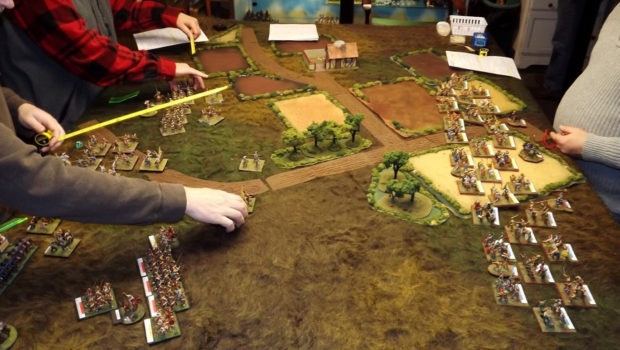Differences and Similarities between War Games
Modern military games came to us from the West. The English word “wargame” has already firmly established in Russian, denoting a whole direction of popular male hobby. It is there, where the culture of military games has been developing for decades, decorating and highlighting the main directions of wargame. However, the culture of the military game has ancient roots. We recall the main milestones of its development and evaluate how historically reliable military games of different genres and epoch which are presented in Gclub casino. You can check the desire of casino creators to please their players with the help of a variety of games and their categories, including slots, online poker, different kinds of roulette, as well as multi-linear slot machines.
History of military games
Military games were extremely abstract until a certain historical moment. The Viking chief, who led several dozen of his men to fight, did not need a plan in some large projection. It is no coincidence that many ancient treatises of the main school of improving the skills of war first called hunting.
When the ancient tried to move war on the game plan, they always had distracted “geometric games”, in which the appearance of the troops and features of tactics did not play any role. It is easy to make sure that the “military strategic” games like Chinese go or Indian chaturanga (smoothly evolved into chess).
XX century became fractional
It the transformation of wargames into a real gaming industry that allows people to apply their military-historical knowledge and choose any niche convenient for themselves. One of the most pressing questions when choosing a particular wargame is often the problem of realistic reflection of the historical event game.
When the view of modern man turns into the past, the question of the reliable interpretation of the past is inevitably raised. The scientific researcher is easier to stick to historical truth many times: he can honestly denote what we know well and what is unknown. The situation is complicated when modern creativity begins to engage in whole records of historical interpretation when creating, for example, historical cinema or, in our case, military games. Maintaining an acceptable level of reliability is complicated, and here, alas, we often see bad statistics.
When creating most military-historical games, the initial stage is to play an authentic appearance. It is usually a historical suit and landscape environment. However, this is not enough for full historical reliability. The internal motivation of the playing field is very important. In military games, the behavior of the troops on the battlefield, dictated by the rules of tactics, as well as the marked conditions of victory.
In addition, it is desirable to reproduce command capabilities of the head of the army:
- • what he sees,
- • where it is located,
- • how its parts management system works.
Obviously, Alexander Macedonian, who was riding a battle-mountain horse and General Ludendorff in a cozy chair with a cup of coffee at the headquarters of World War I, was somewhat different in the style of making their general decisions. One sees the faces of enemies, trying to be patient to implement the plan, another person treats the enemy as the operational situation on maps and endless reports of ammunition stocks, loss lists, and intelligence.
The wargame level of reliability can be manifested differently in different directions. The tabletop wargame is pompous and correctly called “simulation of battles with military-historical miniatures”. In addition to the game armies, collected based on real combat schedules and painted according to the historical military suit, there is a special game table where appropriate layouts of the terrain are placed.
This direction is best developed in the UK. The vast majority of game miniatures manufacturers are located there. Many small, foggy Albion plants provide tin and plastic resources to the world industry of “soldier wargame”.















